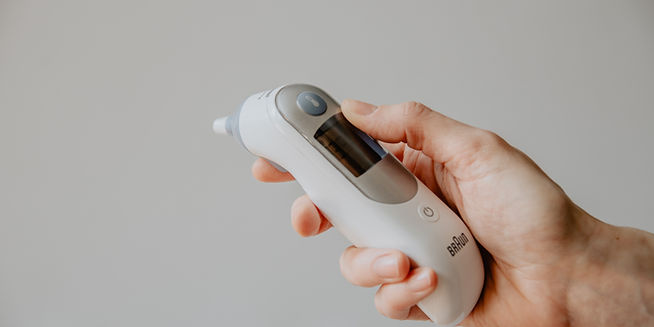How to Deal with Sick Kids While Traveling
July 23, 2025 at 2:23:13 AM

Even the best-planned trip can hit a speed bump if your child gets sick. From fevers to stomach bugs to unexpected allergies, knowing how to handle illness on the go can make a huge difference.
Here’s how to deal with sick kids while traveling — with less panic and more preparation.
Before You Go: Prepare for the Possibility
No one wants to think about their child getting sick on vacation, but it’s wise to prepare. Before your trip:
- Check if your health insurance offers travel coverage
- Consider purchasing travel medical insurance (especially abroad)
- Research nearby clinics or urgent care facilities at your destination
- Learn a few basic medical phrases in the local language (if international)
- Schedule a pre-trip checkup if your child has a chronic condition
Packing a Travel Health Kit for Kids
A well-stocked health kit can save your trip. Include:
- Thermometer (digital or forehead scan)
- Children’s pain reliever/fever reducer (acetaminophen or ibuprofen)
- Electrolyte powder or drinks (for dehydration)
- Band-aids and antibiotic ointment
- Children’s allergy medicine (liquid or chewables)
- Motion sickness medication or patches
- Hand sanitizer and disinfecting wipes
- Tweezers and nail clippers
- Cold medicine (age-appropriate)
Always pack medications in original bottles and double-check TSA rules if flying.
How to Spot Common Travel Illnesses in Children
Watch for these common issues:
- Fevers: May signal viral infections, flu, or COVID-19
- Traveler’s diarrhea: Caused by unfamiliar food or water
- Motion sickness: Symptoms include dizziness, nausea, and vomiting
- Allergic reactions: Watch for rashes, hives, or respiratory symptoms
- Sunburn or heat exhaustion: Often overlooked in hot climates
Keep your child hydrated and rested — travel can take a toll on little immune systems.
What to Do If Your Child Gets Sick on the Road
First, stay calm. Then:
1. Assess symptoms and comfort level
2. Use medications as needed (and within dosage guidelines)
3. Encourage hydration and rest
4. Limit physical activity and exposure to new places
5. Contact your pediatrician via telehealth if possible
Use hotel ice machines to bring down fevers or soothe injuries. Ask the front desk for help finding pharmacies or clinics.
When to Seek Medical Help Away from Home
Go to urgent care or a hospital if your child has:
- High fever that doesn’t respond to medication
- Persistent vomiting or diarrhea
- Rash with fever or swelling
- Difficulty breathing or wheezing
- Dehydration (dry mouth, sunken eyes, no urine)
In unfamiliar countries, look for hospitals with pediatric departments or clinics recommended by your embassy or hotel concierge.
Final Thoughts: Stay Calm, Stay Ready
Dealing with illness on the road is never fun — but it doesn’t have to ruin your trip. The key is preparation, patience, and knowing when to ask for help.
Kids bounce back quickly when they’re cared for and supported. And you’ll gain confidence knowing you can handle bumps in the road — wherever your family travels.

